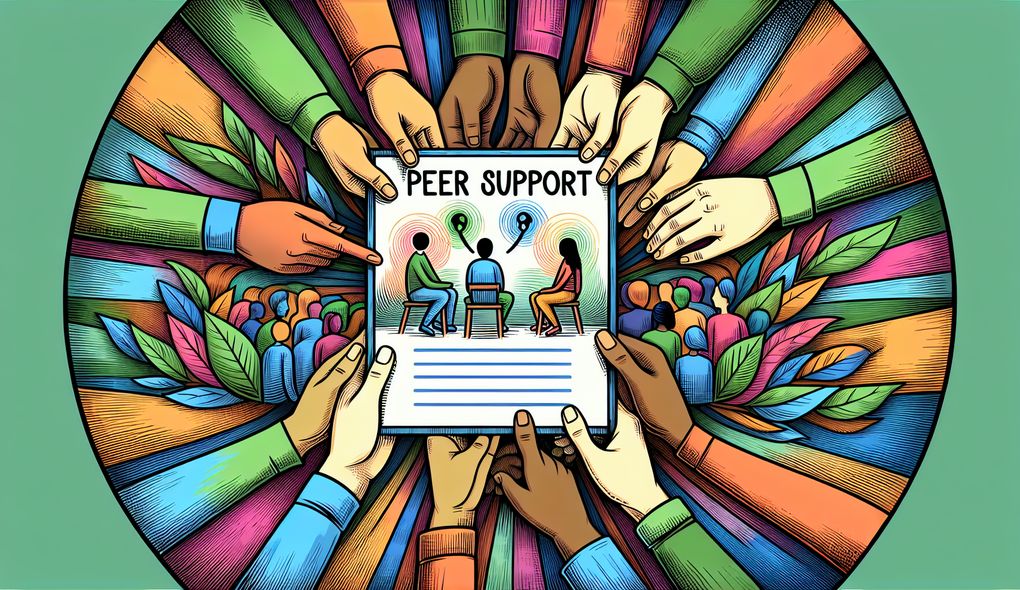How do you empower peers to advocate for themselves and their needs?
JUNIOR LEVEL

Sample answer to the question:
I empower peers to advocate for themselves and their needs by creating a safe and supportive environment for open communication. I actively listen to their concerns and validate their experiences, making them feel heard and understood. I provide information and resources that can help them make informed decisions and take control of their situations. Additionally, I encourage them to set goals and work towards them, providing guidance and support along the way. By empowering peers to advocate for themselves, I believe that they can gain confidence and independence in navigating their challenges.
Here is a more solid answer:
Empowering peers to advocate for themselves and their needs requires a combination of strong interpersonal skills, empathy, and an understanding of recovery processes. Firstly, I establish a trusting and non-judgmental relationship with peers, creating a safe space for open communication. I actively listen to their concerns and validate their experiences, showing empathy and understanding. I also provide them with education and resources on recovery processes and wellness strategies, equipping them with the knowledge to make informed decisions. Furthermore, I assist peers in setting personal goals and developing recovery plans, offering guidance and support throughout their journey. Additionally, I utilize my facilitation skills to conduct group sessions and workshops where peers can develop life skills and support each other. Finally, I collaborate with a multidisciplinary team to ensure comprehensive support for peers, promoting a holistic approach to their well-being.
Why is this a more solid answer?
The solid answer provides specific examples and demonstrates a deeper understanding of the required skills and qualifications for the Peer Support Specialist position. It highlights the importance of establishing a trusting relationship, providing education and resources, assisting with goal-setting, utilizing facilitation skills, and collaborating with a multidisciplinary team. However, it could be improved by including more details and examples of how the candidate has successfully empowered peers in the past.
An example of a exceptional answer:
Empowering peers to advocate for themselves and their needs is a multi-faceted process that requires a combination of interpersonal skills, empathy, and understanding of recovery processes. Firstly, I establish a genuine connection with peers, taking the time to understand their unique experiences and challenges. I actively listen to their concerns and validate their emotions, creating a safe and non-judgmental environment where they feel heard and understood. To empower them, I provide education and resources tailored to their specific needs, ensuring they have access to information that can support their decision-making process. I also encourage them to set personal goals and work towards them, offering guidance and support as they navigate their recovery journey. As a skilled facilitator, I organize group sessions and workshops that foster peer support and the development of essential life skills. These sessions provide a platform for peers to share their experiences, learn from one another, and build a sense of community. Additionally, I actively collaborate with a multidisciplinary team to provide comprehensive support to peers, ensuring their needs are addressed from various perspectives. By empowering peers to advocate for themselves and their needs, I believe in fostering resilience, independence, and a sense of ownership over their well-being.
Why is this an exceptional answer?
The exceptional answer demonstrates a deep understanding of the skills and qualifications required for the Peer Support Specialist position. It provides specific examples and showcases the candidate's ability to establish genuine connections, actively listen, validate emotions, provide tailored education and resources, and encourage goal-setting. Additionally, it highlights the candidate's facilitation skills in organizing group sessions and workshops. The answer also emphasizes the importance of collaboration with a multidisciplinary team to provide comprehensive support. Overall, the exceptional answer goes into greater detail and provides a more comprehensive response than the solid answer.
How to prepare for this question:
- Familiarize yourself with the recovery processes and wellness strategies relevant to the position. This will demonstrate your understanding and ability to provide appropriate support to peers.
- Reflect on your own experiences and recovery journey. Consider how you can use those experiences to connect with and empower peers. Prepare specific examples to illustrate your approach.
- Develop your communication and active listening skills. Practice creating a safe and non-judgmental environment where peers feel comfortable sharing their needs and concerns.
- Enhance your facilitation skills by participating in workshops or training sessions. This will enable you to effectively conduct group sessions and workshops for peers.
- Research the organization or program you are interviewing for. Familiarize yourself with their approach to peer support and recovery, and align your answers accordingly.
- Be prepared to discuss how you collaborate with a multidisciplinary team to provide comprehensive support to peers. Highlight the value of a holistic approach to well-being.
What are interviewers evaluating with this question?
- Interpersonal skills
- Empathy
- Understanding of recovery processes
- Facilitation skills
- Collaboration

